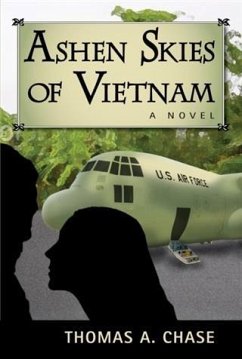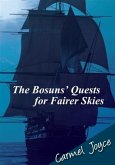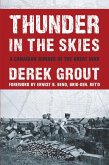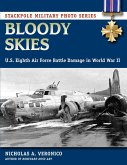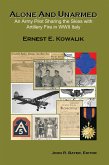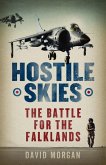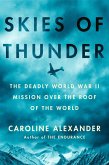Clay and his close-knit crew fly the Lockheed C-130 Hercules, a multi-purpose, turbo-prop transport (that is still in production). The sturdy "Herk" plays a vital role in the story.
Clay is a "good soldier," ably performing his nation's bidding by flying troops and cargo into airfields throughout the country. But as the war intensifies, as he witnesses the horrors inflicted by both sides, and as he gains respect for the Vietnamese people, his feelings change. This transformation is shown in a series of vignettes, such as the night the sky erupts in blazing colors: a thunderstorm, he thinks, before realizing that a B-52 raid is blasting distant forests into matchsticks and incinerating every living thing in its path.
Yet in bustling Saigon, the Pearl of the Orient, life seems unaffected by battles raging in the countryside. Clay enters a tennis tournament and advances to the finals, where, to his surprise, his opponent is a Vietnamese ("half my size and twice my age") named Huang. The match becomes a battle of American power versus the Vietnamese's wily tactics. Clay races to an early lead, but-like a portend of the war-in the stifling heat he wilts, and Huang prevails.
Later, Clay visits Huang's home. An engineer, educated in California, Huang designs bridges. He shows Clay photographs of his works, some that have been destroyed by the Viet Cong, and others-including his "masterpiece"-by American bombs.
Gordo, Clay's friend from college days, undertakes a clandestine mission to drop spies inside North Vietnam. When Gordo's plane crashes, Clay learns from voice tapes that the spies were double-agents and threw grenades into the plane just before parachuting. He bitterly suspects that Frick volunteered the squadron for the doomed mission to enhance his own career.
Clay meets a flight nurse, Johnnie, when he and his crew fly a patient to Clark Air Base in the Philippines, her home base. A mutual attraction develops, but when Clay returns to Vietnam he wonders if he'll ever see her again. Months later, he does. Clay's aircraft is hit. Two crewmen are severely wounded and the flight engineer is killed. With half a finger shot off, Clay lands at a Marine base. His crewmen are put on a med-evac jet that will hasten them to the States; Clay is flown to Clark to have his fingertip reattached. Johnnie is there; love blooms. Filled with remorse, he tells her, "I'm no hero, Johnnie. My job was to get my men home in one piece, and I failed."
The fingertip doesn't "take," but Clay convinces the surgeon to not inform higher ups, lest he be grounded. Returning to the squadron, he wears a glove-some call it a fetish-to conceal the missing digit. He struggles with the loss of friends, his disenchantment with the war, and his participation in it. Despite knowing he will be castigated and accused of cowardice by Frick and others, Clay decides to leave the Air Force-but not until completing his tour of duty.
The monsoon begins, bringing rain and low clouds. During a big airlift operation, Frick screws up, landing at the wrong field and careening into a rice paddy. Clay spots Frick's aircraft; his crewmen have taken cover alongside the short runway. VC are moving closer. Despite protests from his new crew, Clay decides to land in an attempt to rescue the downed airmen, knowing that if he, too, is unable to stop on the runway, or take-off, capture by the VC is inevitable. *
Dieser Download kann aus rechtlichen Gründen nur mit Rechnungsadresse in A, B, BG, CY, CZ, D, DK, EW, E, FIN, F, GR, HR, H, IRL, I, LT, L, LR, M, NL, PL, P, R, S, SLO, SK ausgeliefert werden.

